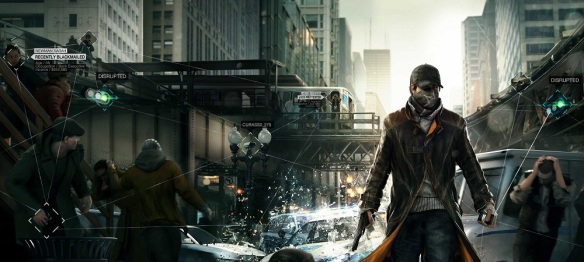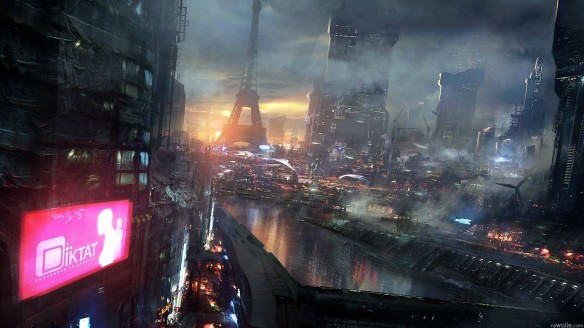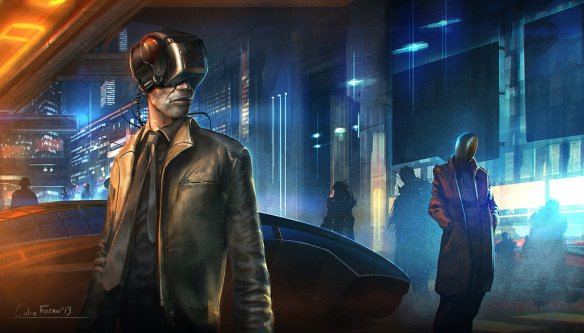
The last two weeks I have been conducting a literature review to see what I could find about the existence of cyberpunk today. My first research objectives was to get a clear definition of what cyberpunk is, so I could create some sort of criteria for examining modern texts.
I came to the consensus that cyberpunk can be defined as the intersection between science fiction and postmodernism. It is a type of science fiction that deals with real world technologies and near futures and sets them against a cyber-fantasy backdrop.
“Cyberpunk is the integration of technology and literature in a world where the gap between science fiction and reality is rapidly closing” (Guven 1995).
From my research of the themes found in the cyberpunk genre and through my understanding of cyberpunk in the films I watch, I made this checklist …
High tech – Low Life
Futuristic Dystopian world
Greed driven corporation or oppressive government system
Visual representations of data
Speculations about the future of existing technologies
A convergence between humans and machines
A brooding out cast protagonist
An anarchist rebellion against dominating oppression
A seedy underground of drugs and crime
Outlandish edgy fashion with punk roots
Noire overall feel
My next objective was to delve into the debate that cyberpunk as movement is over.
Bruce Sterling proclaims that cyberpunk is dead because it has become restrained, commercialized, and mimetic. According to him the respected benchmarks’ of cyberpunk no longer offer, “spontaneous back-flips and crazed dancing on the tables”. The settings come closer and closer to the present day, losing the fantasy (Sterling 1998).
“In the age of Neuromancer we could still believe for one charismatic moment that the body could deep-dish its way past screenal telemetry into galactic flows of data presence”…” Jonny Mnemonic is a bitter reminder of the decline of cyberpunk into the present state of hyper-rational technology (Kelly & Kessel 2007, p.8)
Finally using my check list I set out to find any modern day examples of cyberpunk and not just in films and novels but in clothing, music, games and real life people.







References
Guven, S 1995, ‘The Future in Cyberpunk’, Computer Writing and Research Lab, University of Texas, Austin.
Kelly, J & Kessel, J 2007, Rewired: The Post-Cyberpunk Anthology, Tachyon, San Francisco.
Sterling, B 1998, Cyberpunk In The Nineties, Interzone, viewed 25 March 2016, <http://lib.ru/STERLINGB/interzone.txt>.




